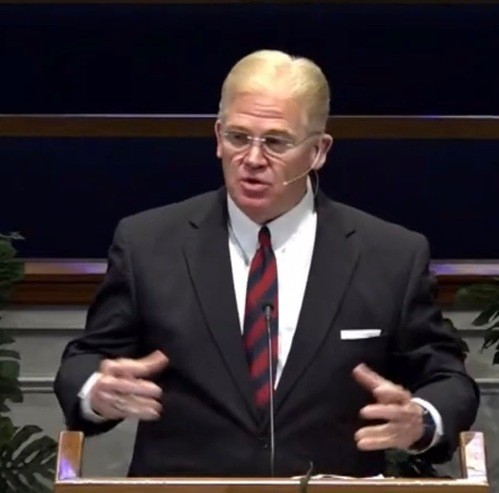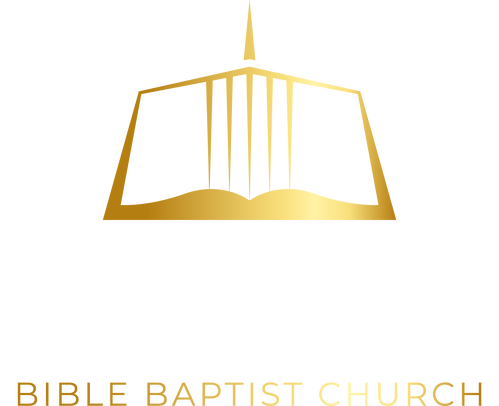The Eternal Word: Unveiling the Divinity of Christ
John 1:1-51
In the beginning was the Word, and the Word was with God, and the Word was God. These profound words from the Gospel of John set the stage for a revolutionary understanding of Jesus Christ - not merely as a great teacher or prophet, but as the eternal, divine Son of God.
The concept of the "Word" or "Logos" held deep significance for both Jews and Greeks in ancient times. For Greek philosophers, the Logos represented an impersonal creative force, the source of wisdom and reason in the universe. To the Hebrews, the "word" was God's self-expression, His revelation of Himself. John brilliantly bridges these worldviews, declaring that the Logos is not an abstract concept, but a person - Jesus Christ.
This declaration is nothing short of earth-shattering. It proclaims that Jesus is eternally God, equally God, and evidentially God. Let's unpack each of these truths:
1. Jesus is Eternally God
"In the beginning was the Word" - before creation, before time itself, Jesus existed. He is not a created being, but the eternal Son of God. This challenges our human understanding, as we struggle to comprehend existence outside of time. Yet it's a crucial truth that sets Christianity apart from other belief systems.
2. Jesus is Equally God
The Word was not just "with" God, but "was God." This speaks to the equality of Jesus with the Father. Throughout history, various heresies have attempted to diminish Christ's divinity, suggesting He was somehow less than fully God. But John's gospel leaves no room for such compromise. Jesus is not merely "like" God or "a god," but is fully and completely divine.
3. Jesus is Evidentially God
John doesn't expect us to accept these claims blindly. The rest of his gospel provides evidence upon evidence for Christ's deity. He calls forth witnesses:
- John the Baptist, who declared Jesus to be "the Lamb of God who takes away the sin of the world."
- The disciples, like Andrew, who recognized Jesus as the long-awaited Messiah.
- Nathanael, who upon meeting Jesus, exclaimed, "Rabbi, you are the Son of God! You are the King of Israel!"
These encounters with Jesus were not casual interactions, but life-altering moments that convinced His followers of His divine nature.
The Incarnation: God Becomes Man
Perhaps the most astounding claim of Christianity is found in John 1:14 - "The Word became flesh and dwelt among us." This is the miracle of the incarnation, God taking on human form. It's Christmas without the manger, focusing not on the circumstances of Jesus' birth, but on the cosmic significance of God entering His creation. This truth addresses the deepest longings of the human heart. In the Old Testament, we hear the cry, "Where is the Lamb?" - a plea for redemption. John the Baptist answers triumphantly, "Behold, the Lamb of God!" Jesus is the fulfillment of all the Old Testament sacrifices, the perfect Lamb who takes away the sin of the world.
The Light that Overcomes Darkness
John uses the powerful metaphor of light and darkness to describe Christ's mission. Jesus is the true light, coming into a world shrouded in spiritual darkness. Some comprehend and receive this light, while others reject it. To those who do receive Him, Jesus gives "the right to become children of God." This imagery reminds us of the transformative power of Christ. Just as physical light dispels darkness, the presence of Jesus in a life drives out spiritual darkness, bringing clarity, hope, and new life.
Grace Upon Grace
While the law came through Moses, bringing judgment, Jesus brings "grace and truth." This grace is described as "grace upon grace" - an inexhaustible supply of God's favor. Where the law condemns, grace offers forgiveness and restoration. This is the heart of the gospel message - that through faith in Christ, we can experience the boundless grace of God.
The Way to the Father
In a beautiful moment, Jesus tells Nathanael that he will see "heaven opened, and the angels of God ascending and descending on the Son of Man." This alludes to Jacob's vision of a ladder reaching to heaven in the Old Testament. Jesus is declaring Himself to be that ladder - the only way to the Father, the bridge between heaven and earth.
A Personal Encounter
The accounts of Andrew, Philip, and Nathanael meeting Jesus remind us that faith is not merely intellectual assent to doctrines, but a personal encounter with the living Christ. These men's lives were radically changed by spending time with Jesus. The same invitation extends to us today - to "come and see" for ourselves who Jesus is.
The Purpose: That You May Believe
Why does John emphasize the deity of Christ so strongly? His purpose is clear: "that you may believe that Jesus is the Christ, the Son of God, and that by believing you may have life in his name." This is not dry theology, but truth with eternal consequences. To recognize Jesus as the divine Son of God is to open the door to eternal life.
As we reflect on these truths, we're faced with a decision. Will we, like Nathanael, recognize Jesus as the Son of God and King? Will we receive the light He offers, experiencing the transformative power of His grace? The invitation stands - to come, to see, and to believe in the One who is eternally God, equally God, and evidentially God.
In a world often marked by darkness and uncertainty, the message of John's gospel shines as a beacon of hope. It proclaims that the eternal God has not left us alone, but has come near in the person of Jesus Christ. As we encounter Him in the pages of Scripture and in personal experience, may we too exclaim with conviction, "My Lord and my God!"
In the beginning was the Word, and the Word was with God, and the Word was God. These profound words from the Gospel of John set the stage for a revolutionary understanding of Jesus Christ - not merely as a great teacher or prophet, but as the eternal, divine Son of God.
The concept of the "Word" or "Logos" held deep significance for both Jews and Greeks in ancient times. For Greek philosophers, the Logos represented an impersonal creative force, the source of wisdom and reason in the universe. To the Hebrews, the "word" was God's self-expression, His revelation of Himself. John brilliantly bridges these worldviews, declaring that the Logos is not an abstract concept, but a person - Jesus Christ.
This declaration is nothing short of earth-shattering. It proclaims that Jesus is eternally God, equally God, and evidentially God. Let's unpack each of these truths:
1. Jesus is Eternally God
"In the beginning was the Word" - before creation, before time itself, Jesus existed. He is not a created being, but the eternal Son of God. This challenges our human understanding, as we struggle to comprehend existence outside of time. Yet it's a crucial truth that sets Christianity apart from other belief systems.
2. Jesus is Equally God
The Word was not just "with" God, but "was God." This speaks to the equality of Jesus with the Father. Throughout history, various heresies have attempted to diminish Christ's divinity, suggesting He was somehow less than fully God. But John's gospel leaves no room for such compromise. Jesus is not merely "like" God or "a god," but is fully and completely divine.
3. Jesus is Evidentially God
John doesn't expect us to accept these claims blindly. The rest of his gospel provides evidence upon evidence for Christ's deity. He calls forth witnesses:
- John the Baptist, who declared Jesus to be "the Lamb of God who takes away the sin of the world."
- The disciples, like Andrew, who recognized Jesus as the long-awaited Messiah.
- Nathanael, who upon meeting Jesus, exclaimed, "Rabbi, you are the Son of God! You are the King of Israel!"
These encounters with Jesus were not casual interactions, but life-altering moments that convinced His followers of His divine nature.
The Incarnation: God Becomes Man
Perhaps the most astounding claim of Christianity is found in John 1:14 - "The Word became flesh and dwelt among us." This is the miracle of the incarnation, God taking on human form. It's Christmas without the manger, focusing not on the circumstances of Jesus' birth, but on the cosmic significance of God entering His creation. This truth addresses the deepest longings of the human heart. In the Old Testament, we hear the cry, "Where is the Lamb?" - a plea for redemption. John the Baptist answers triumphantly, "Behold, the Lamb of God!" Jesus is the fulfillment of all the Old Testament sacrifices, the perfect Lamb who takes away the sin of the world.
The Light that Overcomes Darkness
John uses the powerful metaphor of light and darkness to describe Christ's mission. Jesus is the true light, coming into a world shrouded in spiritual darkness. Some comprehend and receive this light, while others reject it. To those who do receive Him, Jesus gives "the right to become children of God." This imagery reminds us of the transformative power of Christ. Just as physical light dispels darkness, the presence of Jesus in a life drives out spiritual darkness, bringing clarity, hope, and new life.
Grace Upon Grace
While the law came through Moses, bringing judgment, Jesus brings "grace and truth." This grace is described as "grace upon grace" - an inexhaustible supply of God's favor. Where the law condemns, grace offers forgiveness and restoration. This is the heart of the gospel message - that through faith in Christ, we can experience the boundless grace of God.
The Way to the Father
In a beautiful moment, Jesus tells Nathanael that he will see "heaven opened, and the angels of God ascending and descending on the Son of Man." This alludes to Jacob's vision of a ladder reaching to heaven in the Old Testament. Jesus is declaring Himself to be that ladder - the only way to the Father, the bridge between heaven and earth.
A Personal Encounter
The accounts of Andrew, Philip, and Nathanael meeting Jesus remind us that faith is not merely intellectual assent to doctrines, but a personal encounter with the living Christ. These men's lives were radically changed by spending time with Jesus. The same invitation extends to us today - to "come and see" for ourselves who Jesus is.
The Purpose: That You May Believe
Why does John emphasize the deity of Christ so strongly? His purpose is clear: "that you may believe that Jesus is the Christ, the Son of God, and that by believing you may have life in his name." This is not dry theology, but truth with eternal consequences. To recognize Jesus as the divine Son of God is to open the door to eternal life.
As we reflect on these truths, we're faced with a decision. Will we, like Nathanael, recognize Jesus as the Son of God and King? Will we receive the light He offers, experiencing the transformative power of His grace? The invitation stands - to come, to see, and to believe in the One who is eternally God, equally God, and evidentially God.
In a world often marked by darkness and uncertainty, the message of John's gospel shines as a beacon of hope. It proclaims that the eternal God has not left us alone, but has come near in the person of Jesus Christ. As we encounter Him in the pages of Scripture and in personal experience, may we too exclaim with conviction, "My Lord and my God!"


2 Comments
Amen!
Amen!
nThis same Lamb is coming back again! The returning Lamb, Lion, King, Judge, LORD and Savior Christ Jesus! Amen!